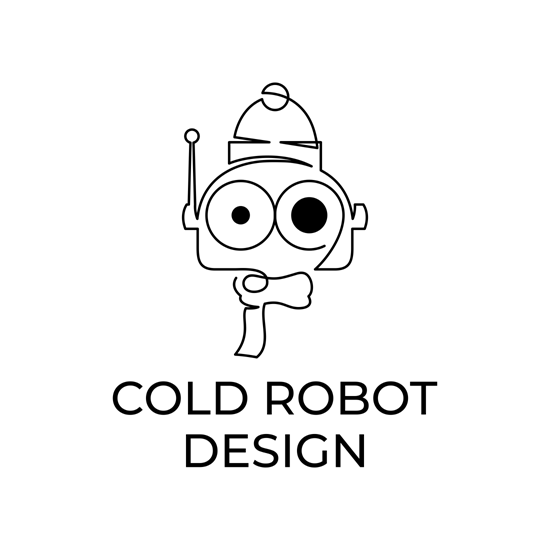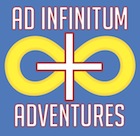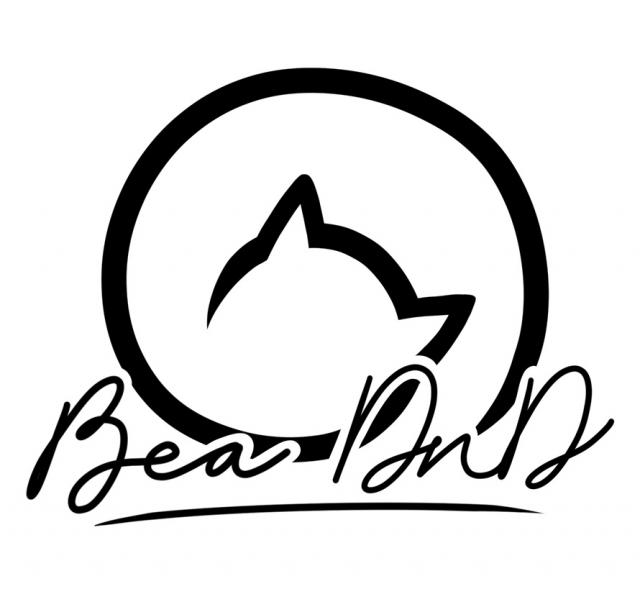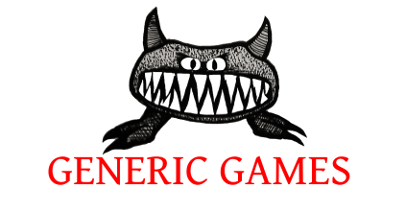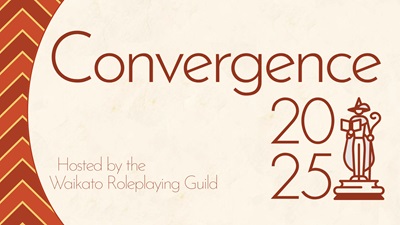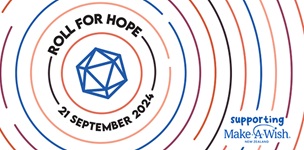Scenario Design Competition
We are in the ninth year of competition for the Scenario Design Competition which we believe has been successful in it's aim to encourage new writers, recognize existing talent, and get even more games at KapCon!
Have a look at the great work submitted in previous years. This year it could be your turn!
What We Are Looking For
There are two categories: scenarios and scenario sketches.
For scenarios, we're looking for original, single-session role playing scenarios. Scenarios should be written with sufficient detail that a person unfamiliar with the setting and rules can gain a clear understanding of events.
For scenario sketches, we're looking for outlines of original scenarios that are suitable for single-session role playing games. This should be detailed enough that a GM wanting to run it could fill in any required details without a great deal of creative or interpretive effort. It should lay out the key events, conflicts and characters that drive the scenario from beginning to end: acts and scenes rather than chapters and verses. It’s okay to leave the GM to fill in stats, colour, minor NPCs, maps and other detail. You should not provide detailed character statistics or sheets, but you should describe any character requirements that a GM should be aware of.
As a rough guideline, we expect a sketch to be around three pages or 1000-1500 words. There’s no formal word limit but if you’re going into a lot of detail then you might want to submit in the ‘full scenario’ category rather than the ‘sketch’ category.
For both categories, the overall judging criteria is the same: would it make a great three-hour convention game?
You may use a published role playing system or setting, but we also encourage the use of settings or systems of your own creation. Your scenario or sketch should be explained in sufficient detail that a person unfamiliar with the setting and rules can clearly understand character relationships and capabilities, NPCs, places and events. If you’re using a published setting or rules, it’s okay to refer the reader back to the published material for details, as long as the characters and events can be understood without those details.
The play time of scenarios should be designed to be between two and a half and three hours in length. It is suggested that your scenario use pre-generated characters due to the time constraints of a convention game. If you don't want to include pre- generated characters then you will need to allow for character creation time within the three hours available. In the case of a sketch, it is sufficient to describe the sort of characters that a GM would need to pre-generate.
For any questions or comments regarding the Scenario Design Competition please e-mail us.
Rules
- This competition is open to anyone with a New Zealand mailing address.
- All entries must be the original work of the creator(s).
- The scenario may not have been previously published nor entered in an earlier competition. Note that this specifically does not prevent you from entering a scenario that was written or run at a previous KapCon, as long as it has not been published or entered into a previous competition. If submitting a sketch, this may not be a summary of a previously entered scenario.
- You may enter in both scenario and scenario sketch categories, but may only receive one award.
- It is acceptable to refer to other published gaming material, but submitted entries may not contain material that infringes intellectual property rights.
- You may enter as many times as you like, and there is no cost to enter.
- The Judge's decision is final.
- KapCon reserves the right to grant no award if there are no entries of sufficient quality.
- Please send a single copy of your entry which identifies you as the author. (This is a change from previous years where anonymous copies were requested.)
- KapCon reserves the right to refuse to accept entries that are, in the opinion of the organizers, illegible or so poorly organized as to make them too difficult to judge or run.
- By entering this competition you agree to let this scenario be run at the next KapCon convention and grant KapCon the right to reproduce enough copies of the scenario material for this purpose.
- Send entries to : kapcon@gmail.com. We prefer Word, Openoffice, RTF or PDF documents, but may be able to handle other formats (just ask).
- The closing date for entering the competition is : December 1 2014.
- Winners will be announced at KapCon.
- We will seek your permission afterwards for your entry to appear on the SDC website. If you plan to commercially publish your work, we are happy to post a link to it.
Tips
- Including a timeline helps make your scenario easy to understand and follow.
- Providing challenging characters for players helps make the game more enjoyable.
- Take into account that it is possible that neither Judge nor players will have played in the setting before.
- A play-test may help to iron out any wrinkles.
Frequently Asked Questions
To send in a question simply e-mail us with your query. All reasonable questions we receive will be answered on this page.
Q. Can I run my game at the con?
Yes - that's the point of the thing.
Q. How is this competition being judged?
Kapcon SDC has two judges who will judge each entry separately and then discuss their opinions of the entries before reaching a consensus. We are discontinuing the double blind system used in previous years, as in practice the judges have been able to make an educated guess as to author in any case.
Q. What are the judging criteria?
Each scenario will be marked on the following: Creativity, Playability, Characters/Character generation, NPCs/character interactions, Pace, Challenge, Plot and Detail, with the emphasis being on Creativity and Playability. We want to see scenarios that will be fun for both GM and players.
Q. What about copyright issues etc?
Under the Berne Convention, to which New Zealand is a signatory, your original creative works automatically gain copyright as soon as you produce them. It is therefore illegal for anyone to reproduce, replicate or otherwise copy your work without your permission, regardless of whether you have made any attempt to publish or register the work.
Q. But I've written a larp!
We're happy to accept small larps (less than 20 players) in the "scenario" category.


